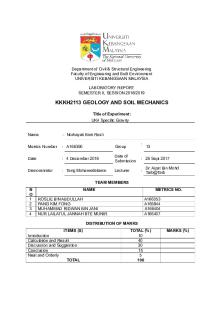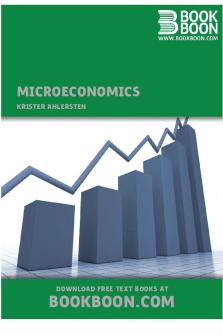UK & Britishness - zusammenfassung PDF

| Title | UK & Britishness - zusammenfassung |
|---|---|
| Course | Pädagogische Psychologie |
| Institution | Fachhochschule Bielefeld |
| Pages | 6 |
| File Size | 138.6 KB |
| File Type | |
| Total Downloads | 81 |
| Total Views | 141 |
Summary
zusammenfassung...
Description
UK & Britishness The British Identity The countries UK = England, Wales, Scotland + Northern Ireland GB = England, Wales, Scotland à every nation has it’s own identity à all combined The royals • Who? - Queen Elizabeth + Prince Charles - Prince William + Kate (kids: George, Luis, Charlotte) - Prince Harry + Meghan (à Mexit) • Where? - Buckingham Palace • What do people expect from them? - show emotions - no scandals - behave normal (not perfect) - representative of the country - take it seriously - act elegant - have a clear opinion - be honest Definition • Remembering the past, honouring the people, embracing the culture • Tolerance towards multiculturalism • Based on sights, food, music, politics, celebrities, people • History, contradictions British values Based on 6 traditional basic ideas: • Fair-play in competitive situations • Caring attitude • Respect/tolerance • Dislike of extremism • Common sense Britishness vs. Englishness. New Englishness Britishness Englishness • Increasingly influential • Stand-alone identity political characters • Friendly national • Shared typical identity behavior • Universe of marmite & • More open to umbrellas Immigrants • Struggle to articulate itself
New Englishness • Celebration of everything they hate • Negative space • Anti-EU • Anti-Political correctness • Anti-independence • Anti-globalization • Self-aware patriotism • Defence mechanism
Characteristics of… England capital: London • Fish & chips • Sight attractions (Big Ben, London Eye, Hyde Park) • Tea • Green hills • Shakespeare • Elizabethan World Age
Ireland Capital: Dublin • Bow tie (Fliege) • Clover (Klee) • Green coat • Leprechaun (Irische Figur) • Beer • Harp (Harfe)
Scottland Captial: Edinburgh • Bagpipe (Dudelsack) • Tartan kilt (Schottenrock) • Bonnet (Mütze)
History British empire • Largest empire in history (in the 19th century) • Britain = was powerful • Defeated other EU countries • Rapid technological advances The first colonies • Discovery of America (1492) • Ruled by the same head of state (UK) • Had to pay taxes, without benefiting from it • Slave trades • Rebellion: Boston Tea Party • They wanted to be independent à Declaration of Independence • India o source of most important trade goods The Boston Tea Party (1773) • Rebellion against the rule of the UK • Disguised (verkleidete) citizens from Boston à threw tea boxes from Britain (India) into harbor basin (Hafenbecken) • Reason: high debts (Schulden)
The political system
3
General Information • Monarchy • Queen o Head of state • Boris Johnson o prime minister of the UK o conservative party • Parties: o conservative party (current ruler) o labour party o (before: liberal party) • no written constitution à but: political documents (Bill of Rights, Magna Carta etc.) The Crown / Queen • Head of State/Church/Armed Forces • Fountain of Justice • Functions
o o o o o
Upholds traditions Appoints Prime Minister Appoints life peers (house of lords) Appoints justices (judiciary) Can dissolve the Executive
Prime Minister & Executive / Government • Elected party • Prime minister (Boris Johnson) à head of the government • Functions: o Puts forward laws o Runs government o Represents will of majority House • • • •
of Commons (Elected legislature) House from parliament 650 representatives are elected (from citizens) Functions: o represents will of people o designs / amends / approves bills
House • • • •
of Lords (appointed legislature) second chamber of UK parliament 750 members not elected, but highranking church members/hereditary peers Functions: o Represents unwritten constitution
General elections • every 5 years • election of representatives in parliament • winner-takes-all (candidate with most crosses wins)
History of the political system •
•
• •
Magna Carta (1215) o King John signed a document, that limits King’s power o Protects own privileges o Rules apply to everyone House of Commons (1236-1332) o first parliament in a chamber o should include 12 non-noble representatives o first: meetings between king & barons, high-ranking church-members o later: more regular meetings with also non-noble representatives Bill of Rights (1689) o rules for freedom of speech in parliament o rights of the english parliament towards the kingdom th Votings in parliamentary elections (19 century): rich people wanted to protect their rights
Monarchy vs Democracy Monarchy Pro • Country is more united • Constitutional power in politics • Change into state = fatal • Economical benefits
Con • • • •
Not compatible with democracy Queen still has power Royals à may not be good for (self)image Better reputation if head of state would be elected
• • • • •
Monarch = non-political figure à symbolizes national values President may not be cheaper Widespread sympathy Positive image à secure trade deals Fast reactions / decisions (to problems)
• • • • •
• Democracy Pro
• • • • •
Damaged democracy Not up to date Expensive lifestyle of royals Monarch has no real power à couldn’t stop a dictatorship, only formal functions / could be taken over by others expensive (£40m / year)
Con
• •
decentralizes power provides equal/fair justice eliminates violence includes citizens limits power of government
• • •
lack of knowledge (of citizens) takes time à decisions cannot be made fast no value of promises people are selfish increases greed (Gier)
Brexit (relationship between GB & Europe) What?
•
Britain leaves the EU à joined in 1973 Brexit = british exit Vote for Brexit: 2016 Theresa May (prime minister from 2016-2019) à started it Brexit was rejected by the House of Commons
• • • • Brexit Pro • • • • •
Economic independence à can take measures themselves Cheaper Own decisions (immigration) Not bound to EU rules, but still impact to the EU market Cultivate relationship between USA & GB
Contra • England could be alone (Other countries were against Brexit) • London could split off (as the financial metropolis) • Lower impact à outsider • EU = main trading partner à potential loss
Consequences (in the image of Britain) • Britains are “flying high”/ are very euphoric • Image of Brexit: being free / independent • Ignorance of consequences • Isolation from other countries à affects globalization • Britains are walking blindly • They try to get the EU out of they way à don’t realize that EU is the only thing that keeps them away from consequences • Consequences: will break down on them, destroy them Would an independent Scotland be better than as a part of the UK? Yes
No •
Scotland would be able to use 100% of the gas / oil revenue it creates
•
Currency-related issues ( à £ pound or € euro?)
• • •
( à most of money goes to Westminister) Chance to create nuclear-free state Has the best attitude to the EU à could get a new EU member quickly Increased global influence
• •
Have to choose free trade between UK & EU Oil: not clear, how much pil they have left à running out of oil = financial crisis
Society: Multiculturalism, Immigration What? (different classes, system, • Determine class: - family background - education - occupation - income/wealth - housing - lifestyle - language/accent • Traditional Class system: Upper Class: small percentage of population, wealthy/influential members, noble families, gentlemen th Middle Class: service class, university-educated, growth since 20 century Lower Class: workers (skilled, semi-skilled, unskilled) • Modern Class System Upper Class: smallest group, nobel, landowners Upper-middle Class: CEOS, managers, government officials, politics, businesses, world of finances Middle-Middle Class: professionals (doctors, architects, teachers), employees Lower-Middle Class: most people, office workers (builders, electricians) Working Class: factory workers, waiters, shop assistants, farmers etc. à suffer from unemployment Hybrid Identity • Multicultural identity • Combination of different cultures • Not only 1 home, but multiple home countries • Mixed family à from different countries • “heart belongs to many places”
History of immigration • • •
th
Late 19 century: british colonies started to acquire greater autonomy Founding British Commonwealth (1931) o connection of british countries British Nationality Act (1948)
o • • •
free entry to Britain for all Commonwealth-Countries (à caused immigration)
London Declaration (1949) o declaration of all members to be free/equal Race Relation Act (1965): o reaction of government, forbidden discrimination 1980-2000: o refugees arrived from Eastern Europe
Reasons for Immigration: • hope for a better life à no wars/violence • more freedom • Britain: seems more open-minded
Current Situation • Ethnic diversity à enriches • Inequality of ethnic groups o white Britains are wealthier than others à are better off than other ethical groups
Pro’s / Con’s (Prejudices/Challenges – Chances/Reality) Pros / Chances • Jobs • Can do work for Britains à do jobs nobody else wants to do • Integration • Diversity • Influence of food, literature, economy à more interesting à understand other cultures • Don’t commit more crimes than others • Boost economy • Quick integration • Become creative / smarter
Cons / Challenges • Take away jobs • Tension between different ethnicities • Racism • Segregation • Terrorism • Live on taxpayers money • Don’t want to learn the language • Loss of native culture
Key Events that led to a negative attitude towards immigrants • Terrorist attack in France (13. November 2015) à offenders were migrants from the Islamic state à killed over 138 people • Terrorist attack in the USA (11. September 2001) à offender was an islamist from Saudi-arabia à 3 airplanes flew into towers of NY World Trade Center • Attack in Brussels (12. January 2016) à offenders were members of Islamic state à over 35 people died...
Similar Free PDFs

UK 4 Specific Gravity
- 9 Pages

Buku Latihan UK TTK
- 111 Pages

Uk constitution essay
- 3 Pages

Bar Clays Transmission-UK
- 2 Pages

Brand Details Product uk
- 2 Pages

LS1537 - UK Constitutional Law
- 6 Pages

Microeconomics-uk - good book
- 134 Pages

Chahal v UK - Summary
- 2 Pages

(( Pestle analysis of NHS Uk))
- 3 Pages

Wagamama UK main menu
- 2 Pages

UK 101 - The story
- 1 Pages

UK v Norway case summary
- 3 Pages

Requirements of a deed UK
- 3 Pages

Essay - Multicultural USA and UK
- 3 Pages
Popular Institutions
- Tinajero National High School - Annex
- Politeknik Caltex Riau
- Yokohama City University
- SGT University
- University of Al-Qadisiyah
- Divine Word College of Vigan
- Techniek College Rotterdam
- Universidade de Santiago
- Universiti Teknologi MARA Cawangan Johor Kampus Pasir Gudang
- Poltekkes Kemenkes Yogyakarta
- Baguio City National High School
- Colegio san marcos
- preparatoria uno
- Centro de Bachillerato Tecnológico Industrial y de Servicios No. 107
- Dalian Maritime University
- Quang Trung Secondary School
- Colegio Tecnológico en Informática
- Corporación Regional de Educación Superior
- Grupo CEDVA
- Dar Al Uloom University
- Centro de Estudios Preuniversitarios de la Universidad Nacional de Ingeniería
- 上智大学
- Aakash International School, Nuna Majara
- San Felipe Neri Catholic School
- Kang Chiao International School - New Taipei City
- Misamis Occidental National High School
- Institución Educativa Escuela Normal Juan Ladrilleros
- Kolehiyo ng Pantukan
- Batanes State College
- Instituto Continental
- Sekolah Menengah Kejuruan Kesehatan Kaltara (Tarakan)
- Colegio de La Inmaculada Concepcion - Cebu

